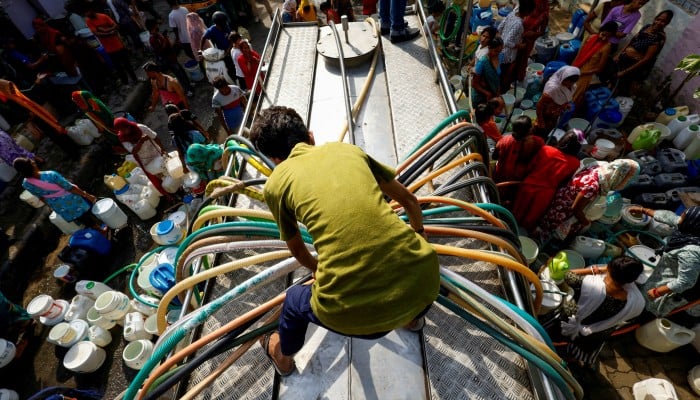The phenomenon of global warming has become a pivotal concern in contemporary discourse surrounding environmental sustainability. A commonly held observation posits that developed countries bear a significant burden of responsibility in exacerbating the climatic crisis. This assertion warrants a nuanced exploration as we navigate the intricate interplay between industrialization, consumerism, and their resultant ecological impacts.
To understand the culpability of developed nations, one must first consider their historical trajectory towards industrialization. The late 19th and early 20th centuries heralded an era characterized by rapid advancements in manufacturing and technology. This period, often dubbed the Second Industrial Revolution, resulted in unprecedented economic growth. However, this growth came at a considerable environmental cost. Fossil fuel consumption soared as developed countries sought to enhance productivity and meet the burgeoning demands of an expanding global market.
The carbon emissions produced during this epoch laid the groundwork for the climate crisis we face today. Developed countries, responsible for the majority of the world’s historical greenhouse gas emissions, are entities of significant concern. The United States, Canada, the nations of Western Europe, and more recently, Japan and South Korea, have all contributed immensely to atmospheric pollution. A stark statistic illustrates this: as of 2021, developed countries accounted for approximately 60% of total global greenhouse gas emissions since 1850. This statistic serves as a compelling indictment against the environmental stewardship of these nations.
Moreover, one cannot overlook the role of consumerism as a catalyst for environmental degradation. In many developed nations, a culture of excess prevails, where the pursuit of material wealth and comfort often overshadows ecological considerations. The textile, automotive, and electronic industries, among others, proliferate through a relentless cycle of production and consumption. This not only drives demand for energy-intensive manufacturing processes but also engenders significant waste. Landfills brim with discarded products, while oceans are inundated with plastics—each tangible symptom of our throwaway culture.
While the onus of responsibility rests heavily on developed countries, it is imperative to discern the intricate socio-economic factors that underpin their actions. There exists a paradox in which economic disparity correlates with environmental degradation. Developed nations wield power and influence on a global scale, often dictating the terms of trade and industry to developing nations. For instance, multinational corporations frequently relocate manufacturing to countries with lax environmental regulations, thereby outsourcing pollution while reaping the benefits of economic globalization.
This outsourcing phenomenon raises profoundly ethical questions regarding environmental justice. On one hand, it allows developed countries to maintain their standards of living; on the other, it effectively transfers the environmental burden to less affluent nations. Countries in the Global South, grappling with economic challenges, frequently find themselves sacrificing their natural resources and environmental integrity to satisfy the demands of affluent markets. The resultant environmental degradation manifests in deforestation, desertification, and the depletion of biodiversity—issues that not only reverberate locally but also contribute to the broader specter of climate change.
In addition to the socio-economic dynamics at play, there exists significant political implications that compound the issue of climate responsibility. The geopolitical landscape is often characterized by an intricate web of treaties, agreements, and negotiations. Nations repeatedly congregate to address climate concerns, yet the stark reality is that political inertia frequently impedes progress. Developed countries, while ostensibly advocates for climate action, have historically fallen short of their commitments. The Paris Agreement, for instance, was hailed as a monumental milestone in the fight against climate change. However, its implementation has been fraught with challenges, as many developed countries have failed to meet their emissions reduction targets.
The dichotomy between rhetoric and action can often foster skepticism and disillusionment among global citizens. Activist movements have emerged, fueled by a sense of urgency and frustration rooted in the apparent lack of accountability. Grassroots organizations, indigenous peoples, and environmentally-conscious citizens are mobilizing to demand substantive changes. Their overarching message is clear: developed nations must fundamentally reassess their role in the perpetuation of global warming and take palpable steps towards rectifying their historical misdeeds.
As one considers potential avenues for change, collaboration emerges as an essential component. Developed countries must engage with developing nations in a manner that fosters mutual respect and cooperation. This interaction should be characterized by ethical investment in sustainable technologies, shared knowledge, and resource management. By empowering developing countries through financial aid and technological transfer, developed nations can assist their counterparts in cultivating sustainable economic growth without replicating historically damaging practices.
Furthermore, the transitioning towards a circular economy presents promising prospects. This model encourages the redesign of production processes, fosters sustainable consumption, and emphasizes waste reduction. By adopting principles of sustainability, developed nations can initiate a paradigm shift that prioritizes environmental health alongside economic prosperity.
Ultimately, while developed countries cannot wholly absolve themselves of the consequences of global warming, the road to redemption requires concerted effort, innovative thinking, and collaborative actions. It is imperative that national governments, corporations, and individuals alike recognize the interconnectedness of global environmental dynamics and work toward rectifying past transgressions. In this endeavor, fostering environmental resilience and social equity will be crucial, ensuring not only that future generations inherit a viable planet but also that equity and justice are upheld in the shift towards sustainability.







